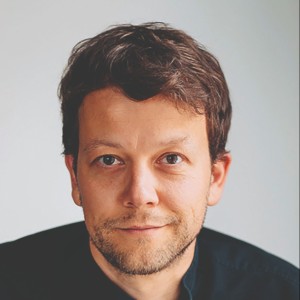The challenge
We faced a challenge when selecting the participants. On one hand, a basic income should be for everyone. Therefore, we wanted the participants to be as diverse as possible and as representative as possible of all demographic groups in Germany. On the other hand, the study needed to produce statistically meaningful and generalisable findings, which would not be achievable with a highly diverse (heterogeneous) group of this size. We were thus faced with the decision of selecting 122 people who represented the entire country but did not provide scientifically reliable data on the effects of a basic income, or selecting 122 people from a more limited group from whom we could draw definitive conclusions. In the end, we chose the latter. Specifically, we focused on a group with the following characteristics:
Household size: Single-person households for comparability
Basic income is paid to individuals, while income is currently measured per household. Strictly speaking, a four-person household would receive four basic incomes. However, this would result in too few households to produce reliable results. Paying only one basic income in a multi-person household could also distort the results, as the single payment would then be shared among different numbers of people, making the amount per person less consistent and the results more difficult to compare. Moreover, including entire households would have required securing the participation and consent of all household members.
To avoid these fundamental issues in basic income research, we limited our study to single-person households.
Age: Important life decisions between the ages of 21 and 40
If we had included all age groups among the 122 participants, nearly each participant would have stood alone as a representative of their age. However, deriving generalisable insights from individual experiences would not be accepted as valid research within the scientific community. Therefore, we had to narrow down the age group and decided on a range that is particularly interesting from a socio-psychological perspective.
Most people between the ages of 21 and 40 have already completed their educations, become employed or made important career decisions, or started families. During these years, many build their lives or reinvent themselves. To clearly identify the changes brought about by a basic income, we chose to focus the study on participants in this age range.

Income: Studying basic income in the middle class for the first time
Basic income has already been the subject of numerous scientific studies worldwide—mostly among recipients of state benefits or lower-income groups. The results have been strikingly consistent: people didn’t work less, but more often in jobs that suited them better. They pursued more—and longer—training and education, enjoyed improved mental and physical health, committed fewer crimes, showed greater trust, and reported higher life satisfaction.
However, basic income is more than just a socio-political measure to fight poverty. It does not aim, as the welfare state does today, to help the poor, but instead to give everyone enough so that poverty cannot arise in the first place. A basic income is not emergency aid but a universal investment in the development of society as a whole. We wanted to discover what this investment yields. To do this, we set out to investigate the effects of basic income for the first time in a demographic that makes up the majority of society: the middle class.
The participants in this study had a net household income between €1,100 and €2,600 per month. Almost a third of the adult population in Germany falls within this income bracket—or about 50% of those living alone.
But how does a basic income affect people who, at first glance, don’t need it because they already earn more than €1,200? What untapped potential might be unleashed by the new sense of security? And how does our relationship to work change when €1,200 simply arrives each month, no strings attached?

Everyone had a chance – no one was excluded
To obtain meaningful and generalisable research results, we had to focus on a specific research group. However, it was also important to us to offer a chance to applicants who didn’t meet these criteria. To ensure this, we reserved a spot for one randomly selected applicant from the entire pool, regardless of age, income, or household size.
Every application contributed to the study
To all of those who weren't selected, we'd like to say: your application was not in vain. More participants meant better quality data. By applying, you helped us lay the best possible foundation for this unique research project. Thank you!
How reliable is this study?
The Basic Income Pilot Project is the first long-term study on basic income conducted in Germany. With a duration of three years, it’s one of the longest basic income studies worldwide to date. By using various scientific methods, such as surveys, qualitative interviews, and an interdisciplinary research team, we were able to examine a basic income and its effects from multiple perspectives—making this one of the most unique approaches of its kind.
The findings of the pilot project will be generalizable not to the entire German population, but to 21- to 40-year-old individuals in single-person households with middle incomes. After the three-year study, the findings for these households will be reviewed and discussed to determine to what extent they can be fully or partially applied to other segments of the population.

